Pain Management
Showing all 13 results
Buyer-Responsibility : It is the buyer’s sole responsibility to verify legality in their jurisdiction.
Pain is a common health condition affecting millions of people globally. According to the CDC, nearly three in five adults (58.9%) experienced some form of pain in three months in 2019.
A recent survey published by the Economic Times reveals that eight in ten employees report experiencing body pain-related concerns while working from home. This highlights the need for effective pain management solutions. Thus, understanding how to manage pain effectively is more crucial than ever.
In this guide, we will explore various pain management strategies, the types of medications available, and how to choose the best treatment approach for your needs.
What Are Pain Medications?
Painkillers or analgesics are medications that relieve body pain. Pain medications are used to treat two types of body pain- acute and chronic pain.
Acute pain is sudden and usually sharp. They typically resolve once the underlying cause is treated. Whereas chronic pain can last for a long time, often continuing for months or years. It may remain even after the initial injury or illness has healed.
Painkillers come in a wide array of forms and brand names, depending on different needs and preferences. They are available as oral medications, including tablets and capsules, as well as topical treatments like ointments, gels, creams, and patches. This variety allows for targeted and versatile pain management options.
What Are Pain Medications Used For?
Pain meds are prescribed to relieve body pain and inflammation caused by the following conditions.
- Surgery
- Injury
- Acute pain such as headaches, muscle cramps, strains, or sprains.
- Menstrual cramps
- Chronic conditions such as cancer, back pain, and arthritis.
Types Of Pain Medications
Prescription Pain medications include-
Opioids
Opioids, also called narcotics, are powerful pain medications that include oxycodone, Tapentadol, hydrocodone, and morphine. They are prescribed by doctors to treat persistent or severe pain. It is used to treat chronic pain by patients recovering from surgery or experiencing severe pain associated with cancer. Opioids work by blocking pain signals in the brain, thus offering effective relief from pain.
Corticosteroids
Corticosteroids are a type of medication that reduces inflammation by suppressing the immune system. They help relieve pain and swelling in conditions like arthritis, allergies, and asthma. These medications work by calming down the body’s immune response, which causes inflammation.
Corticosteroid medicines include cortisone, hydrocortisone, and prednisone.
Anticonvulsants (anti-seizure medications)
Anticonvulsants, also known as anti-seizure medications, are drugs originally developed to treat epilepsy by controlling seizures. They help with body pain, especially nerve-related pain, by stabilizing the electrical activity in the brain and nerves.
Anticonvulsants can reduce the pain signals sent to the brain, making them effective for conditions like neuropathy, fibromyalgia, and other types of chronic nerve pain.
Some of the common anticonvulsants prescribed by doctors include pregabalin, Levetiracetam, Topiramate, and Carbamazepine.
NSAIDs
NSAIDs, or Nonsteroidal Anti-Inflammatory Drugs, are a type of medication used to reduce pain and inflammation. Some of the commonly recommended NSAIDs include ibuprofen, aspirin, and naproxen. These drugs are often used for headaches, muscle aches, arthritis, and other mild to moderate pain conditions.
Muscle Relaxers
Muscle relaxers are medications that help relieve muscle spasms, which are involuntary contractions of muscles that cause pain. They work by relaxing the muscles to reduce tension and pain.
Muscle relaxers are often used to treat conditions like back pain, neck pain, and injuries that cause muscle stiffness. A few commonly used muscle relaxers include carisoprodol (Soma) and cyclobenzaprine.
Safety And Efficacy In Pain Treatment
While administering any pain medication, it is important to follow the safety instructions given below to achieve the best results.
- Proper Dosage- Always take the correct dose of medication to avoid under-treatment or overdose.
- Avoiding Interactions– Taking these pain medications with other medications can result in drug interaction that can lower its effectiveness while increasing the risk of side effects.
- Patient Monitoring– Patients with kidney, heart, and liver disorders should regularly check with their healthcare providers to adjust treatment as needed and prevent complications.
- Long-term use– Do not take any of these medications for long-term use without consulting a doctor, as it can result in dependency.
Our Range Of Pain Medications
At IyrinHealth Care, we retail the following pain medications-
Carisoprodol
Soma pill, the brand drug of Carisoprodol, is a muscle relaxant commonly used to treat discomfort associated with acute musculoskeletal conditions. At IyrinHealth Care, we retail a range of Soma pills, including Pain o Soma in 350 mg and 500 mg, as well as Soma Dol in 350 mg, 500 mg, and 750 mg, to help manage your pain effectively.

| Note- We understand that every individual’s pain management needs are unique and different. That is why we offer both Pain o Soma and Soma Dol in the same dosage strengths of 350 mg and 500 mg. While both medications contain Carisoprodol as the active ingredient, they may vary in their price and are available in different pill packages. |
Tapentadol
We offer a range of Tapentadol products to meet your pain management needs. Our selection includes-
- Immediate-Release Formulations– Designed for quick and effective relief, our immediate-release options include Topcynta 100 mg, Tapaday 100 mg, and Aspadol 100 mg.
- Extended-Release Formulations– For sustained pain control, we provide extended-release options such as Aspadol 200 mg and Tapaday 200 mg.
Pregabalin
At IyrinHealth Care, we provide Nervigesic as a reliable Pregabalin option, available in three dosage strengths.
Nervigesic 75 mg is suitable for beginners or people requiring a lower dose of Pregabalin for mild symptoms. It can be gradually increased to Nervigesic 150 mg. This is ideal for moderate pain and neurological discomfort. Whereas
Nervigesic 300 mg is the highest dosage strength available in our platform. It is designed for individuals needing a higher dosage for more severe conditions.

Choosing The Right Treatment
Understanding the differences between the Soma pill, Tapentadol, and Pregabalin is essential for choosing the right medication.
| Differentiating Factor | Soma Pill (Carisoprodol) | Tapentadol | Pregabalin |
| Primary Use | Muscle relaxation for acute pain | For moderate to severe pain | Treatment of nerve pain, fibromyalgia, and epilepsy |
| Onset of Action | 30 minutes | 30 minutes ` | 1 to 3 hours |
| Duration of Action | 4 to 6 hours | Immediate Release (IR)- 4 to 6 hours Extended Release (ER) tablets- 12 hours. | 6 to 8 hours |
| Common Dosages Available | 350 mg, 500 mg, 750 mg | 100 mg (immediate-release), 200 mg (extended-release) | 75 mg, 150 mg, 300 mg |
| Price per pill at IyrinHealth Care | Starts at $0.75 per pill | Starts at $1.04 per pill | Starts at $1.12 per pill |
| Patient rating on Drugs | 9.2 out of 10 | 6.2 out of 10 | 6.8 out of 10 |
Guidelines For Safe Use Of Pain Medications
Before using any pain medication, it is recommended that you follow the guidelines mentioned below.
- Always talk to a healthcare professional before starting any pain medication. They can recommend the appropriate drug and dosage based on your specific condition and medical history.
- Pain medication should be stored away from the reach of children and pets to avoid accidental ingestion. To maintain the effectiveness of the medication
- Take the medication exactly as prescribed by your doctor. Do not exceed the recommended dose, as doing so can increase the risk of side effects and dependency.
- As pain medication can have severe side effects if used incorrectly thus, dispose of any unused or expired medication safely.
- Do not share your medication with your friends and family.
- Avoid discontinuing the medication abruptly. Talk to your doctor about how to stop or reduce your medicine.
Alternative Pain Relief Methods
Exploring other holistic options can provide effective pain management solutions with fewer risks and side effects.
Turmeric-
Turmeric is a spice popular in Indian cuisine. It contains curcumin, a compound known for its pain-relieving properties, especially for conditions like diabetic neuropathy. Available as supplements, tea, or seasoning, its effectiveness can be enhanced when combined with black pepper.
Heat Therapy-
Heat therapy, such as wraps, hot water bottles, or heating pads, is proven to relieve muscle soreness and lower back pain. It works by increasing blood flow to the affected area, easing joint stiffness and menstrual discomfort. In some cases, alternating between heat and cold provides a better result.
Cold Therapy-
Using ice packs or frozen items can effectively reduce inflammation, swelling, and pain from injuries like sprains and strains. Applying ice when you first experience pain can be beneficial.
Massage Therapy-
Massage can help alleviate muscle tension caused by stress or anxiety, relieve pain, and provide relaxation. It is also helpful in easing muscle cramps.
Medical Disclaimer
All information provided is for informational purposes only. This is not a substitute for professional medical advice.
FAQs
What are the best pain meds for period cramps?
What is the best pain medication for severe arthritis?
Do dentists give pain meds after tooth extraction?
How to make your doctor give you pain meds?
What is the best pain medication for chronic pain?
What is the best pain medication for severe arthritis?
What are the strong painkillers?
-
Sale!
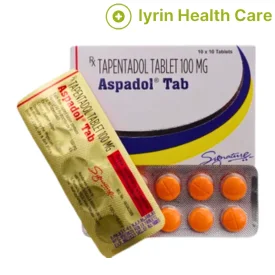
Aspadol 100mg Tapentadol Pain Management
$185.00 – $500.00Price range: $185.00 through $500.00 Buy Now This product has multiple variants. The options may be chosen on the product page -
Sale!
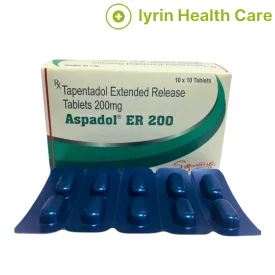
Aspadol 200mg
$199.00 – $279.00Price range: $199.00 through $279.00 Buy Now This product has multiple variants. The options may be chosen on the product page -
Sale!
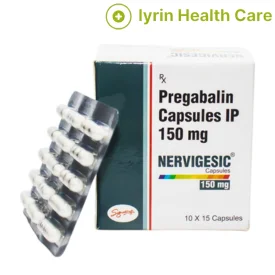
Nervigesic 150mg Pregabalin Pain Management
$130.00 – $210.00Price range: $130.00 through $210.00 Buy Now This product has multiple variants. The options may be chosen on the product page -
Sale!
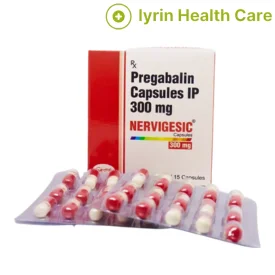
Nervigesic 300mg
$140.00 – $220.00Price range: $140.00 through $220.00 Buy Now This product has multiple variants. The options may be chosen on the product page -
Sale!
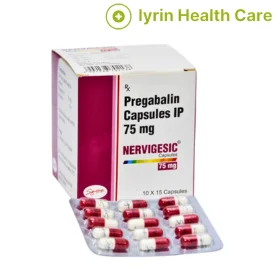
Nervigesic 75mg
$120.00 – $200.00Price range: $120.00 through $200.00 Buy Now This product has multiple variants. The options may be chosen on the product page -
Sale!
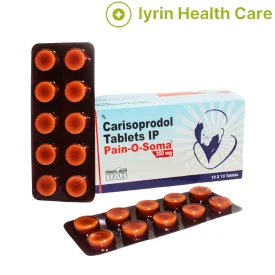
Pain O Soma 350mg Carisoprodol Pain Management
$400.00 – $750.00Price range: $400.00 through $750.00 Buy Now This product has multiple variants. The options may be chosen on the product page -
Sale!
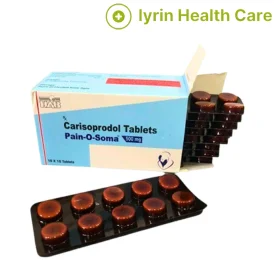
Pain O Soma 500mg Carisoprodol Pain Management
$400.00 – $750.00Price range: $400.00 through $750.00 Buy Now This product has multiple variants. The options may be chosen on the product page -
Sale!
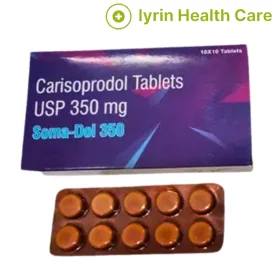
Soma Dol 350mg Carisoprodol Pain Management
$140.00 – $275.00Price range: $140.00 through $275.00 Buy Now This product has multiple variants. The options may be chosen on the product page -
Sale!
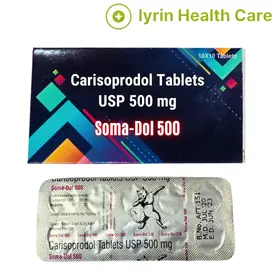
Soma Dol 500mg
$140.00 – $275.00Price range: $140.00 through $275.00 Buy Now This product has multiple variants. The options may be chosen on the product page -
Sale!
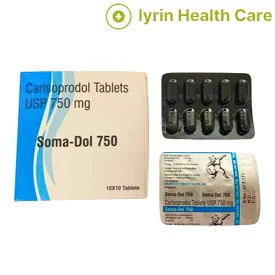
Soma Dol 750mg
$145.00 – $275.00Price range: $145.00 through $275.00 Buy Now This product has multiple variants. The options may be chosen on the product page -
Sale!
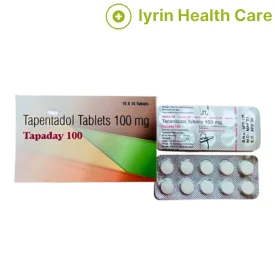
Tapaday 100mg Tapentadol Pain Management
$185.00 – $350.00Price range: $185.00 through $350.00 Buy Now This product has multiple variants. The options may be chosen on the product page -
Sale!
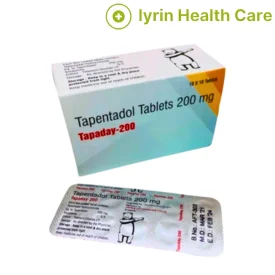
Tapaday 200mg Tapentadol Pain Management
$185.00 – $350.00Price range: $185.00 through $350.00 Buy Now This product has multiple variants. The options may be chosen on the product page -
Sale!
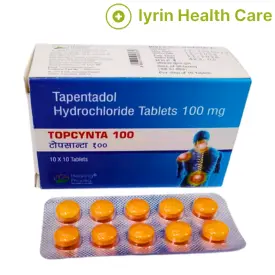
Topcynta 100mg Tapentadol Pain Management
$169.00 – $249.00Price range: $169.00 through $249.00 Buy Now This product has multiple variants. The options may be chosen on the product page
Disclaimer
Legal & Medical Disclaimer: This website is operated as an India-based pharmaceutical supply platform. Products are manufactured and dispatched from India. Content is for educational purposes only and is not medical advice. We do not diagnose, prescribe, or recommend treatment. Availability and legal status of medicines vary by jurisdiction. By ordering, the buyer initiates import and agrees to comply with local laws, prescription requirements, and import regulations.

 info@iyrinhealth.com
info@iyrinhealth.com



